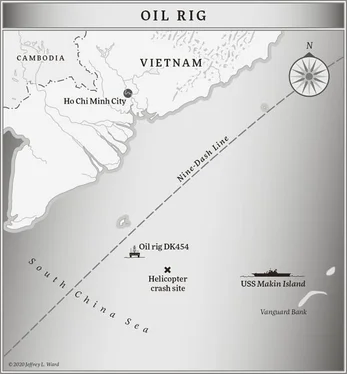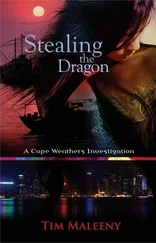“Go!” Zulfira’s voice was a shattered scream as she fell on top of the startled man. “Leave, Hala! Leave now!”
Ren pushed the dying woman away, then lay there on his back, chest heaving, his shirt gleaming like red satin in the lamplight. He swallowed, head lolling, to look at Zulfira, who clutched her stomach, wracked with pain.
Ren started to rise. “B … b … bitch!” A cruel laugh escaped his swollen lips. “No one will even know you are gone …”
Outside Zulfira Azizi’s home, the man’s derisive laugh cost him his life.
Clark had watched from the shadows across the street when he’d first arrived. He noted the location of security cameras—on the eaves, light poles, and perched on the top of street signs. A Han Chinese sentry stood beside a white Toyota Cressida—the only car on a street filled with scooters. Clark had pulled guard duty for a big shot before, and knew what it looked like. This guy wore a long wool coat over civilian clothing, but Clark was reasonably certain he was a policeman, likely a driver of whoever was inside Zulfira Azizi’s home. A flame flared behind the sentry’s cupped hand, momentarily illuminating his face as he lit a cigarette. He returned the lighter to his pants pocket, opening his coat just enough for Clark to catch the outline of a pistol on his belt. The sentry tapped it before he let the coat fall, and then leaned back against the hood of the car, stretching, taking a long drag on the fresh cigarette. As if struck with a sudden idea, he glanced up at the cameras, then lifted the coat again and tucked it behind his holster. His hand hovered above the weapon and then squared off in the darkness. He pantomimed a quick-draw like a gunfighter in the Old West. He let the coat fall, took three steps, then looked up before repeating the pantomime gunfight.
Clark stifled a chuckle. This asshole knew exactly where the cameras were, and saved his gunfighting theatrics for the moments he was in the black.
Movement in the windows drew Clark’s attention away from the buffoon. Lights flickered inside. Shadows shifted oddly, back and forth behind floral curtains near the front door. The sentry’s head snapped up at some sound coming from inside. Distance and a moaning wind made it difficult for Clark to pick up the sound at first.
Then a sudden lull in the wind brought the blood-chilling wail of a woman in despair.
Clark came up on his toes at the pitiful sound, preparing to move.
Next to the sedan, the sentry shook his head—and laughed.
John Clark took killing seriously—both tactically and morally. He’d ended the life of many people—some of them in unspeakably brutal ways that he’d never talk about, even to Ding or Sandy … especially not to Sandy. He told himself that they’d all been necessary—for the greater good—but that depended on one’s point of view. He slept well most nights, but felt reasonably certain that if there was such a thing as judgment day, he could, at the very least, expect a stern talking-to from the Big Man. People who killed others for a living rarely afforded themselves the luxury of fretting over the sin of it. More often, or at least for Clark, it hinged on adherence to a personal moral code.
Sometimes—far less often than one might expect—he’d had the luxury of thinking things through, planning, learning all there was to know about the person whose life he would extinguish. The vast majority of circumstances, though, dictated immediate action, like this sentry, standing between Clark and someone in danger—and laughing derisively at their pain.
Clark closed the distance quickly, crossing the street when the sentry turned to listen to more screams pouring from inside the house—padding up behind him in a spot with no camera coverage.
For as much as he pantomimed the gunfighting action, the sentry was woefully slow on the draw, allowing Clark to give him a quick hammer-fist to the side of the neck and then pluck the small revolver out of the man’s holster before he could react. Intent on moving toward the sound of the screams, and unwilling to leave an adversary behind him, Clark pressed the little revolver to the wide-eyed man’s belly and pulled the trigger.
He got nothing. Not even a click.
“Shit!” He resorted to using the handgun as a mini–battering ram, driving it barrel-first, again and again, into the man’s teeth, before slamming it into the side of his head.
Clark realized the gun was a replica about the time the man collapsed.
“Some gunslinger,” Clark spat, anchoring the man to the ground with a boot to the head. He dropped the worthless prop and wheeled toward the door—moving toward the sound of bitter screams.
Hala brought the cleaver down with all her might. Ren flailed, grabbing her hand and shoving the blade away as it came down. It hovered a hair above his heaving throat. Tendons knotted in his neck. Zulfira was there, too, helping Hala press the cleaver down, down, down.
Ren screamed, one hand wrapped around Hala’s where she held the cleaver, the other flailing with the little knife, slashing at Zulfira’s back as he struck blow after sickening blow. “Why? Won’t? You? Die?”
Hala could feel her aunt’s strength ebbing. A ghoulish smile crossed Ren’s face. He felt it, too.
Hala’s stomach lurched and she had to fight the urge to vomit. She was too small to finish this, too weak.
A shadow crossed behind her. Her heart sank. More of Fat Suo’s men—
Then a dark boot came down next to her hand, stepping on the spine of the cleaver and driving the blade deep into Ren’s neck.
Hala looked up at the tall man who towered above her. He was white—an American, with thinning silver hair and hard eyes that flashed with cruelty. He softened when he met her gaze and put a hand over his heart.
A friend.
Hala rolled away, gasping. There was nothing she could do about it if he decided to kill her. She ignored him and dragged herself across the floor to her aunt, who lay shuddering in a pool of blood on the floor. The man dropped to his knees beside them. He worked furiously to stop Zulfira’s bleeding, but her wounds were too many and too deep.
Hala pressed her forehead against her aunt’s cheek, whimpering. “Why? Why did you do that?”
The grimace face fell away. Her lashes fluttered. “I told you,” she whispered. “We do what we must.”
“I’m sorry,” the gray-haired man said to Hala after her aunt breathed a final shuddering breath.
Hala looked up at him, wide-eyed, covered in blood and tears. She whispered, “Who are you?”
She’d grown up with a rudimentary grasp of English from working at the Jiefang market, talking to tourists with her father. Few Americans or Europeans even tried to speak Mandarin. Fewer still attempted more than a butchered greeting in Arabic. No tourist at the market had ever tried to talk to her in Uyghur. She was young and smart, with an ear for language. Her father had taught her early on that she could go far by learning English. Classes at the gymnastics school helped refine the basics she’d learned at the market.
“A friend,” the man said, hand to heart again. “Are you hurt?”
Hala put the collar of her shirt in her mouth and stared at him, unable to speak. She tasted blood, but did not care. Her head spun. The room grew smaller.
“Are you hurt?” the man asked again, pantomiming a knife against his own arm. “Cut?”
Hala shook her head, then, without another thought, threw herself into the stranger’s arms. She wanted to cry, but nothing came out.
23
Gray clouds hung low enough to scrape the ice while Dr. Moon sat in the wardroom and ate a breakfast of steel-cut oats and blueberries. She was dressed for travel: thick socks, heavy boots, insulated Arctic-weight bibs she kept unzipped while inside the boat. A bright red anorak with a wolverine fur ruff lay draped across the packed duffel in the chair beside her. It was custom-made, a gift from her auntie, a famous Inupiat seamstress in her home village of Point Hope.
Читать дальше











![Александр Ирвин - Tom Clancy’s The Division 2. Фальшивый рассвет [litres]](/books/417744/aleksandr-irvin-tom-clancy-s-the-division-2-falsh-thumb.webp)
